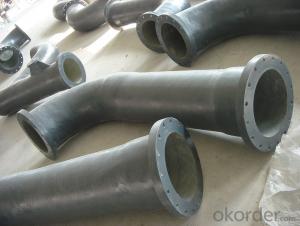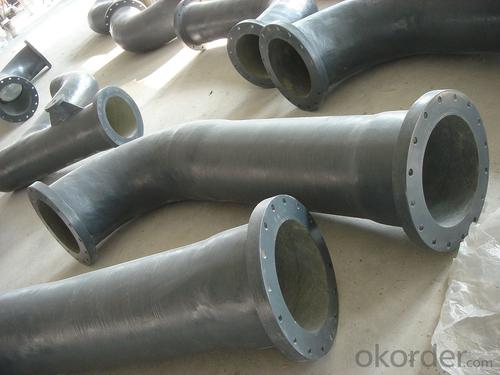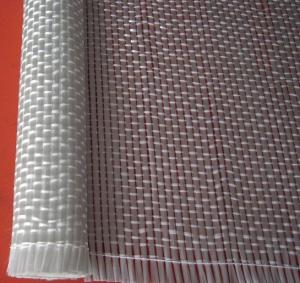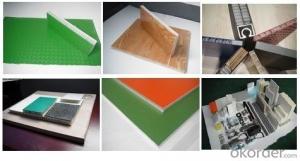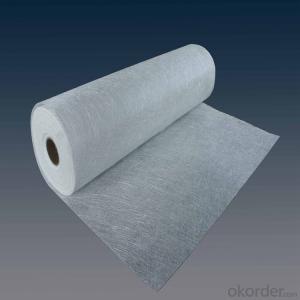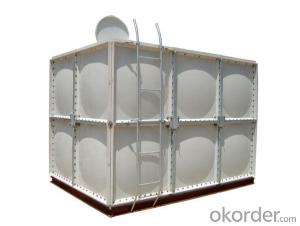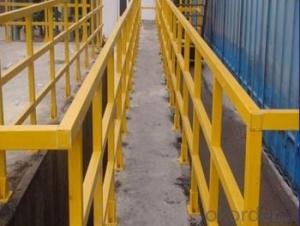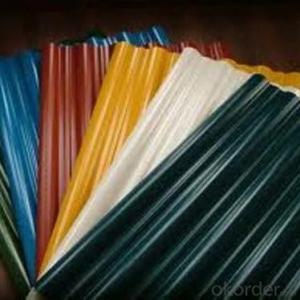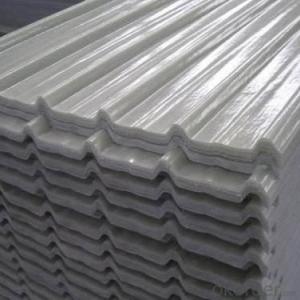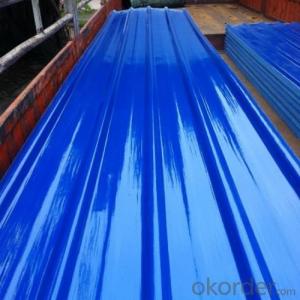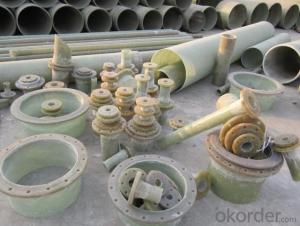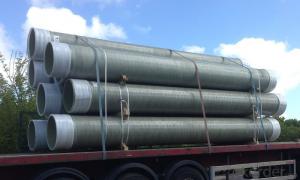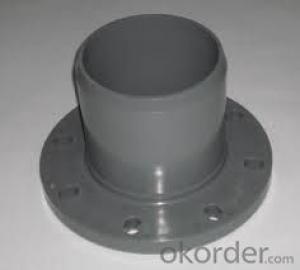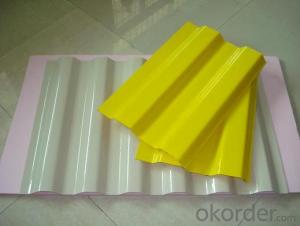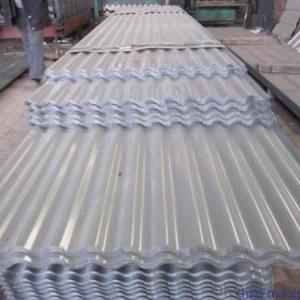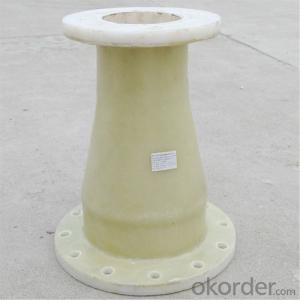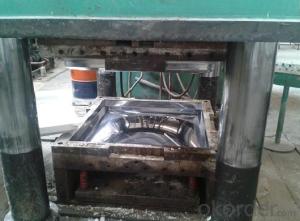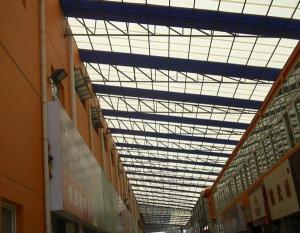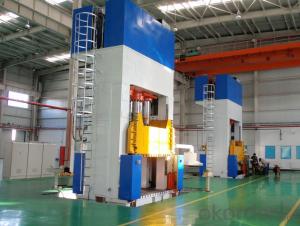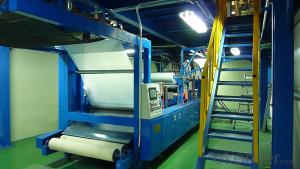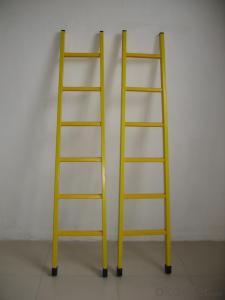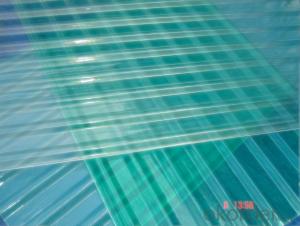Resolite FRP Roof Panels - Fiberglass Reinforced Water Pipe Fittings
- Loading Port:
- China main port
- Payment Terms:
- TT OR LC
- Min Order Qty:
- 100 kg
- Supply Capability:
- 100000 kg/month
OKorder Service Pledge
OKorder Financial Service
You Might Also Like
Specifications
FRP water pipe fittings
1.Safety
2.Applicability
3.Durability
4.Economy
FRP Pipe Fitting
1.Safety
2.Applicability
3.Durability
4.Economy
FRP Pipe Fitting
1. Good physical mechanics performance
2. Being resistant to chemical erosion and longer service life
3. Excellent hydraulic characteristics
4. Lower installation and keeping cost
5. Flexible design and shorter reform term
6. No medium pollution
1.Chemical medium transportation pipe
2.Various producing process pipe (chemical process, paper making process, polluted water treatment
process, sea water purifying process, food and drink producing process, and medicine producing process)
3.Pressure pipe for small hydroelectric power station on the ground and cycling pipe for power plant
4.Polluted water collecting and transporting pipe
5.Drink water transporting main line and tubing pipe
6.Oil field water injecting pipe and oil transporting pipe
7.Heat transporting pipe and sea water transporting pipe
8.Agricultural irrigation pipe
9.FRP set (ventilation, air-conditioner, chimney, cleaner) and piping
10.Gas drainage pipe for mine
Features
1.Medium and low pressure pipe 0.6MPa2.5 MPa
2.High pressure pipe5.5MPa24 MPa
3.Mobile gravity pipe (which can be used when the pressure is under 0.6MPa)
4.Vacuum tube, external pressure pipe or siphon
If you have interest in the FRP pipe, please provide the following parameters: media, pressure and the use of the environment (overhead or buried), temperature, stiffness requirements, connections.
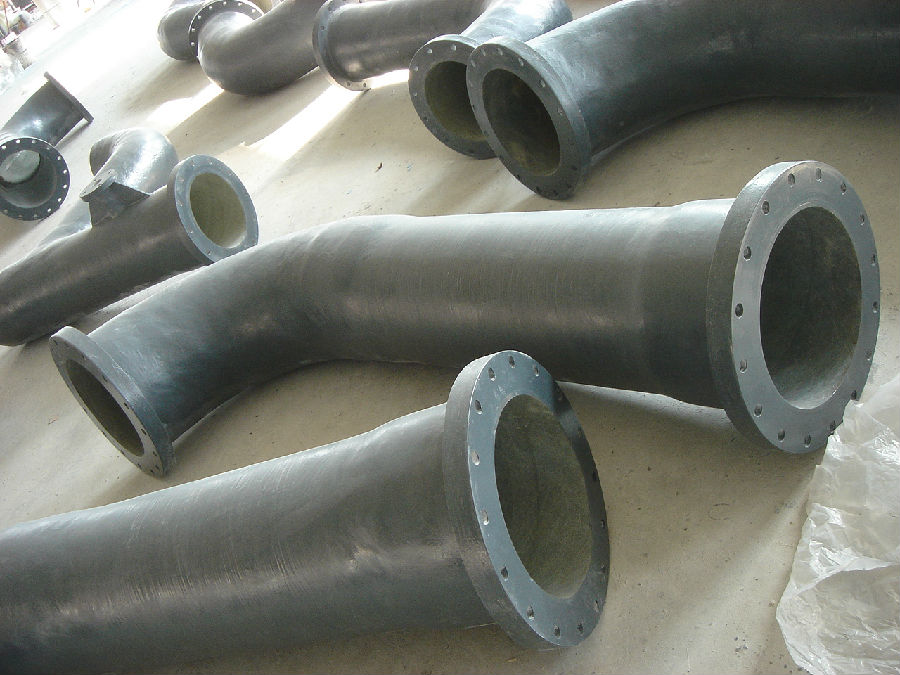
- Q: Can FRP roofing panels be installed on wooden frames?
- FRP roofing panels are compatible with wooden frames, which are frequently utilized as support structures for such installations. The adaptable and lightweight qualities of FRP panels render them appropriate for numerous settings, including residential, commercial, and industrial buildings. Before proceeding with the installation, it is crucial to verify the structural integrity of the wooden frame to ensure it can sufficiently sustain the weight of the panels. Moreover, the utilization of appropriate fastening techniques and sealing methods is essential to guarantee a secure and waterproof installation. All in all, FRP roofing panels present an economical and long-lasting option for wooden frame structures.
- Q: Are FRP roofing panels suitable for use in coastal areas?
- Yes, FRP (Fiberglass Reinforced Plastic) roofing panels are suitable for use in coastal areas. FRP panels are highly resistant to corrosion, making them ideal for environments with high levels of salt and moisture, such as coastal areas. They are specifically designed to withstand harsh weather conditions, including strong winds, heavy rain, and intense sunlight. Additionally, FRP panels have excellent durability, longevity, and low-maintenance requirements, making them a cost-effective choice for coastal regions. They are also lightweight, which makes installation easier and reduces the load on the building structure. Overall, FRP roofing panels are a reliable and suitable option for coastal areas due to their resistance to corrosion and ability to withstand harsh coastal elements.
- Q: Can FRP roofing panels be used for soundproofing?
- FRP roofing panels excel at safeguarding buildings against weather conditions and maintaining their structural integrity. Although they do provide a certain level of insulation, their primary function is not soundproofing. Achieving soundproofing requires materials that can effectively absorb, dampen, or obstruct sound waves. In contrast, FRP roofing panels tend to be thin and lightweight, which means they may not possess sufficient soundproofing capabilities. To effectively soundproof a space, it is recommended to utilize specialized materials like acoustic panels, mass-loaded vinyl, or sound reduction insulation products. These materials are specifically engineered to absorb or obstruct sound waves, resulting in a quieter and more serene environment. In conclusion, while FRP roofing panels may offer some insulation against sound, they are not explicitly designed for soundproofing. If you desire to reduce noise levels, it is advisable to explore other soundproofing materials that are better suited for this purpose.
- Q: Are FRP roofing panels suitable for healthcare or medical facilities?
- FRP (Fiberglass Reinforced Plastic) roofing panels are indeed suitable for healthcare or medical facilities. These panels offer a range of benefits that make them an excellent choice for such environments. First and foremost, FRP panels are highly durable and resistant to corrosion, which is vital for maintaining a sanitary and hygienic atmosphere in medical settings. They are also resistant to mold, mildew, and bacteria growth, which is essential for preventing the spread of infections and maintaining a healthy environment for patients and staff. Furthermore, FRP roofing panels are lightweight and easy to install, which can be advantageous when retrofitting or renovating existing medical facilities. Their lightweight nature reduces the strain on the building structure and decreases the installation time, minimizing disruption to the facility's operations. Additionally, FRP panels are available in various colors and finishes, allowing for customization to match the aesthetic requirements of the healthcare facility. Moreover, FRP roofing panels provide excellent light transmission, which is crucial for healthcare settings as it promotes natural lighting and reduces the reliance on artificial lighting. Natural light has been proven to enhance healing and improve the overall well-being of patients, while also positively impacting the working environment for medical professionals. Lastly, FRP panels are cost-effective and have a long lifespan, making them a practical choice for healthcare facilities where budget constraints are a consideration. Their durability and low maintenance requirements contribute to reduced long-term costs associated with roof repairs and replacements. In conclusion, FRP roofing panels are highly suitable for healthcare or medical facilities due to their durability, resistance to corrosion and microbial growth, ease of installation, customization options, light transmission properties, and cost-effectiveness. These panels provide a reliable roofing solution that meets the specific requirements of medical settings, ensuring a safe, sanitary, and aesthetically pleasing environment for patients and healthcare professionals.
- Q: Can FRP roofing panels be used in greenhouses?
- Yes, FRP (Fiberglass Reinforced Plastic) roofing panels can be used in greenhouses. FRP panels are a popular choice for greenhouse roofing due to their durability, lightweight nature, and ability to let in natural light. They are resistant to weathering and UV radiation, which makes them ideal for use in an environment where they will be exposed to sunlight for long periods. Additionally, FRP panels can be easily installed and are low-maintenance. Their translucent properties allow sufficient sunlight to pass through, promoting healthy plant growth while also providing insulation to regulate temperature and protect the plants from extreme weather conditions. Overall, FRP roofing panels are a suitable and practical option for greenhouses.
- Q: Can FRP roofing panels be used for covered bike racks or bicycle shelters?
- Yes, FRP roofing panels can be used for covered bike racks or bicycle shelters. FRP (Fiberglass Reinforced Plastic) panels are lightweight, durable, and resistant to weather elements, making them ideal for outdoor structures like bike shelters. They provide protection from rain, sun, and other environmental factors, ensuring the safety and longevity of the bikes.
- Q: Are FRP roofing panels resistant to graffiti or spray paint?
- Yes, FRP roofing panels are typically resistant to graffiti or spray paint. The smooth and non-porous surface of FRP panels makes it difficult for paint to adhere, making them less susceptible to graffiti or spray paint damage. Additionally, FRP panels can be easily cleaned using common cleaning agents without causing any damage to the panel's surface.
- Q: Are FRP roofing panels suitable for schools?
- Yes, FRP roofing panels are suitable for schools. FRP, which stands for Fiberglass Reinforced Plastic, is a durable and lightweight material that is commonly used in the construction industry. FRP roofing panels have several qualities that make them an excellent choice for school buildings. Firstly, FRP roofing panels are highly resistant to weathering and corrosion. They can withstand harsh weather conditions such as rain, snow, and UV rays without deteriorating or fading. This durability ensures that the roofing panels will last for a long time, reducing the need for frequent repairs or replacements, which is particularly beneficial for schools with limited budgets. Secondly, FRP roofing panels are fire-resistant. They have a high fire rating and are self-extinguishing, meaning they do not contribute to the spread of flames. This fire-resistant feature provides an added layer of safety for school buildings, reducing the risk of fire-related accidents and damage. Additionally, FRP roofing panels are easy to install and require minimal maintenance. They are lightweight, making the installation process quicker and easier compared to other roofing materials. Once installed, FRP roofing panels require minimal upkeep, as they do not require regular painting or sealing to maintain their appearance and performance. Furthermore, FRP roofing panels have excellent thermal insulation properties. They can help regulate the temperature inside the school building, reducing the reliance on heating and cooling systems. This energy-efficiency can result in cost savings on utility bills and contribute to a more comfortable learning environment for students and staff. In conclusion, FRP roofing panels are a suitable choice for schools due to their durability, fire resistance, low maintenance requirements, and thermal insulation properties. These panels provide long-lasting protection for school buildings, ensuring a safe and comfortable environment for students and staff while also being cost-effective in the long run.
- Q: Can FRP roofing panels be used in curved or sloped roofs?
- Yes, FRP (Fiberglass Reinforced Plastic) roofing panels can be used in curved or sloped roofs. FRP panels are flexible and can be easily bent to match the shape of a curved or sloped roof. They are designed to handle different angles and shapes, making them a versatile option for various roof designs. Additionally, FRP panels are lightweight, durable, and resistant to weathering, making them suitable for use in different types of roofs, including curved or sloped ones.
- Q: Can FRP roofing panels be installed over different roof substrates (e.g., concrete, metal)?
- FRP roofing panels can be installed over different roof substrates including concrete and metal. However, it is important to ensure that the substrate is properly prepared and suitable for installation. When installing FRP roofing panels over concrete, it is crucial to make sure that the surface is clean, dry, and free from any loose materials or contaminants. Any cracks or uneven areas should be repaired before installation to provide a smooth and level surface for the panels. Similarly, when installing FRP roofing panels over metal roofs, it is important to ensure that the metal surface is clean, free from rust or corrosion, and properly fastened. Any loose or damaged metal panels should be replaced or repaired before installation. In both cases, it is recommended to consult the manufacturer's guidelines and specifications for the specific FRP roofing panels being used. They can provide detailed instructions and recommendations on the proper installation methods and any specific requirements for different roof substrates. It is also important to consider the structural integrity of the roof and whether it can support the additional weight of the FRP roofing panels. Consulting with a professional roofing contractor or engineer is advisable to assess the existing roof structure and determine if any modifications are needed to accommodate the FRP panels. Overall, while FRP roofing panels can be installed over different roof substrates, proper preparation, adherence to manufacturer's guidelines, and consideration of the roof's structural capacity are essential to ensure a successful and long-lasting installation.
Send your message to us
Resolite FRP Roof Panels - Fiberglass Reinforced Water Pipe Fittings
- Loading Port:
- China main port
- Payment Terms:
- TT OR LC
- Min Order Qty:
- 100 kg
- Supply Capability:
- 100000 kg/month
OKorder Service Pledge
OKorder Financial Service
Similar products
Hot products
Hot Searches
Related keywords
